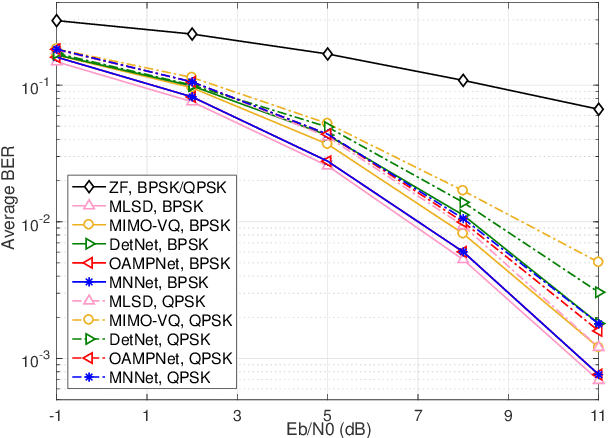A Modular Neural Network Based Deep Learning Approach for MIMO Signal Detection
Paper and Code
Apr 01, 2020



In this paper, we reveal that artificial neural network (ANN) assisted multiple-input multiple-output (MIMO) signal detection can be modeled as ANN-assisted lossy vector quantization (VQ), named MIMO-VQ, which is basically a joint statistical channel quantization and signal quantization procedure. It is found that the quantization loss increases linearly with the number of transmit antennas, and thus MIMO-VQ scales poorly with the size of MIMO. Motivated by this finding, we propose a novel modular neural network based approach, termed MNNet, where the whole network is formed by a set of pre-defined ANN modules. The key of ANN module design lies in the integration of parallel interference cancellation in the MNNet, which linearly reduces the interference (or equivalently the number of transmit-antennas) along the feed-forward propagation; and so as the quantization loss. Our simulation results show that the MNNet approach largely improves the deep-learning capacity with near-optimal performance in various cases. Provided that MNNet is well modularized, the learning procedure does not need to be applied on the entire network as a whole, but rather at the modular level. Due to this reason, MNNet has the advantage of much lower learning complexity than other deep-learning based MIMO detection approaches.
 Add to Chrome
Add to Chrome Add to Firefox
Add to Firefox Add to Edge
Add to Edge